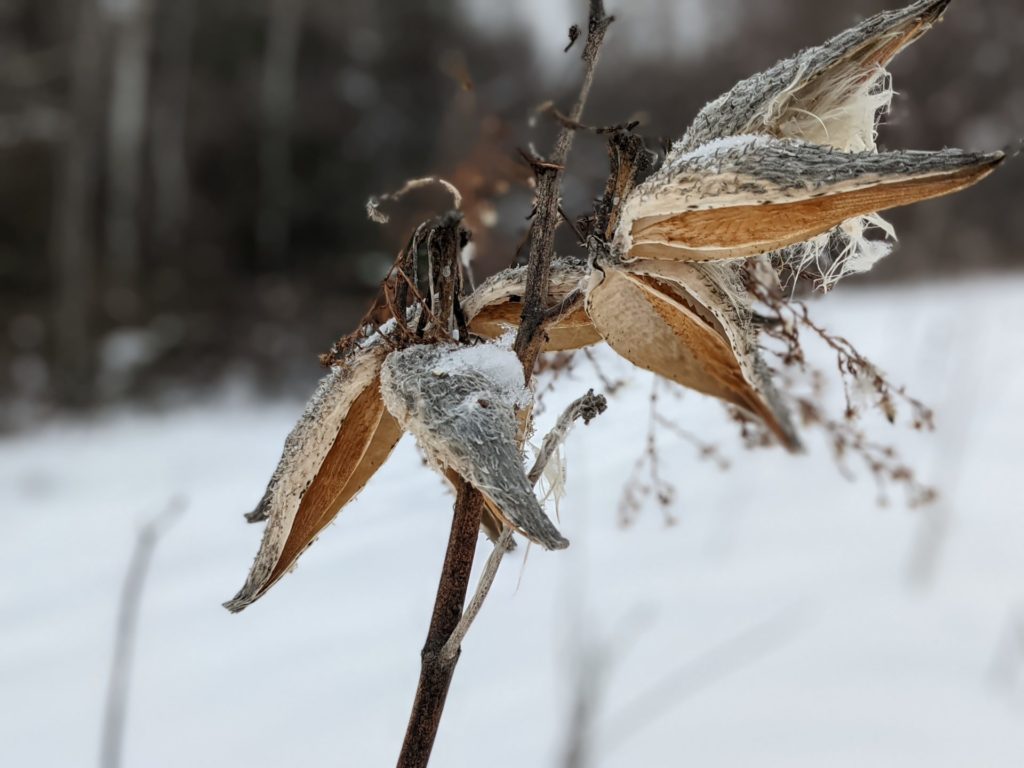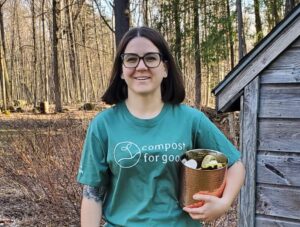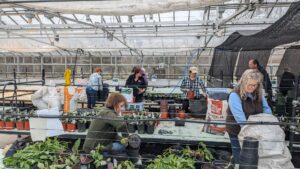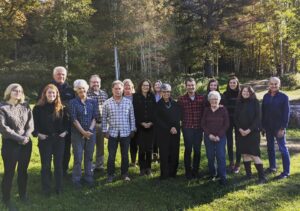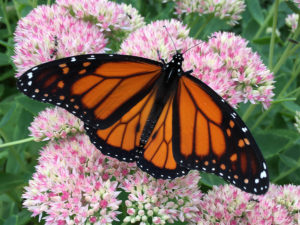 Every year, innumerable seasonal residents depart the Adirondacks, seeking the warmth and long daylight hours of southern climes. Many year-round residents remain, comfortably hunkering down to wait out the long cold winter. We’re talking, of course, about pollinators – the bees, butterflies, moths, birds, beetles, bats and other small mammals that move pollen around from plant to plant, ensuring the growth of our food supply and the health of our ecosystem.
Every year, innumerable seasonal residents depart the Adirondacks, seeking the warmth and long daylight hours of southern climes. Many year-round residents remain, comfortably hunkering down to wait out the long cold winter. We’re talking, of course, about pollinators – the bees, butterflies, moths, birds, beetles, bats and other small mammals that move pollen around from plant to plant, ensuring the growth of our food supply and the health of our ecosystem.
Pollinators such as monarch butterflies and ruby-throated hummingbirds undertake arduous journeys to migrate thousands of miles to the southern United States and Mexico for the winter. Amazingly, the round-trip monarch migration can take up to four or five generations of butterflies to complete.
Overwintering pollinators that remain local to the Adirondacks through the winter utilize a variety of strategies to survive the cold. Aerated, unmulched soils allow insects such as native solitary bees to lay their eggs in nests underground. The leaves and sticks atop the soil insulate the eggs until they hatch and the pupae are kept safe and warm inside the nests until spring. While some pollinators – like hawk moths – settle into cozy underground cocoons, others make their winter homes by burrowing into holes of soft wood, like bumble bee queens. Hoverflies, who hibernate in the nooks and crannies of woody vegetation, lay their eggs in early spring so their larvae can feast on aphids. Beautiful viceroy butterflies overwinter as caterpillars hibernating in seed pods or rolled up leaves.
As pollinator stewards, we can help make the winter a little bit cozier for these overwintering species, and prepare for the return of migratory pollinators. So how can we help?
Minimize Melting Agents
Take action to reduce the amount of salt and melting agents you use on your driveway, walkways, or sidewalks. Melting agents draw water away from plants and soil and can be toxic to the nesting pollinators that reside just below the surface. The Ausable River Association offers five watershed-friendly snow removal tips that can help you minimize salt pollution on your property. You can also learn more about our project to stop salt contamination on our Road Salt Reduction Project page.
Take a tip from the overwintering pollinators: get some rest!
Just like the pollinators, you work hard in the spring, summer, and fall months. Winter is a great time to sit back and relax. Take a moment to enjoy a short poem:
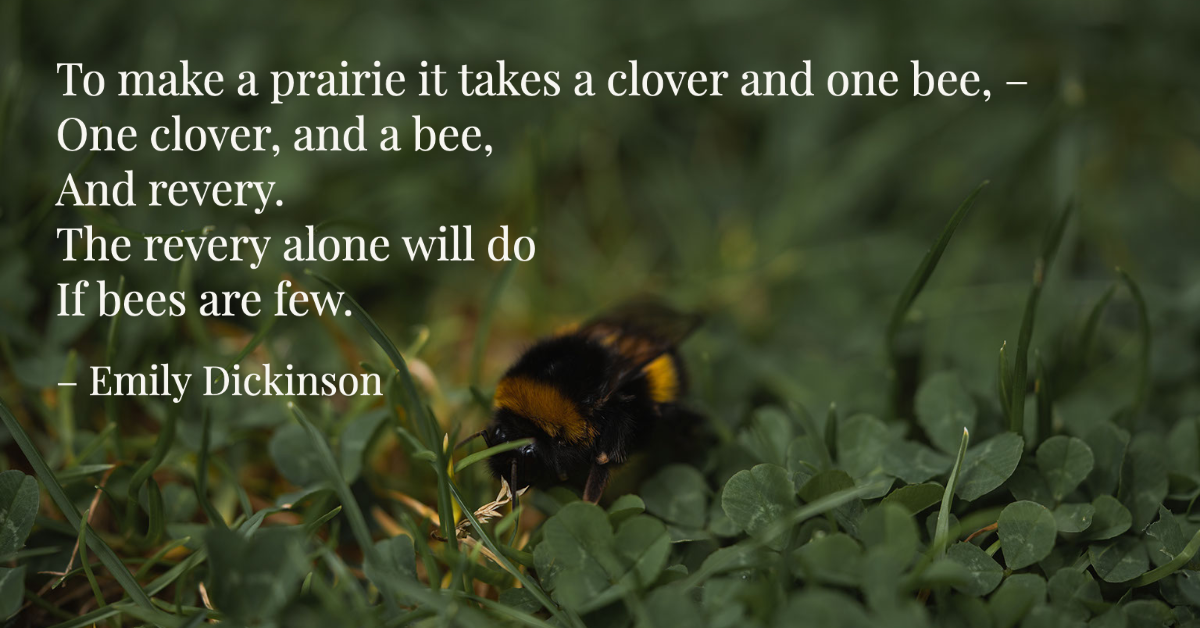
Reflect on what worked well for you and your local pollinators in the past year. Did some of the native flora you planted fare better than others? Were there favorites for certain pollinators that you would like to encourage?
Plan Ahead
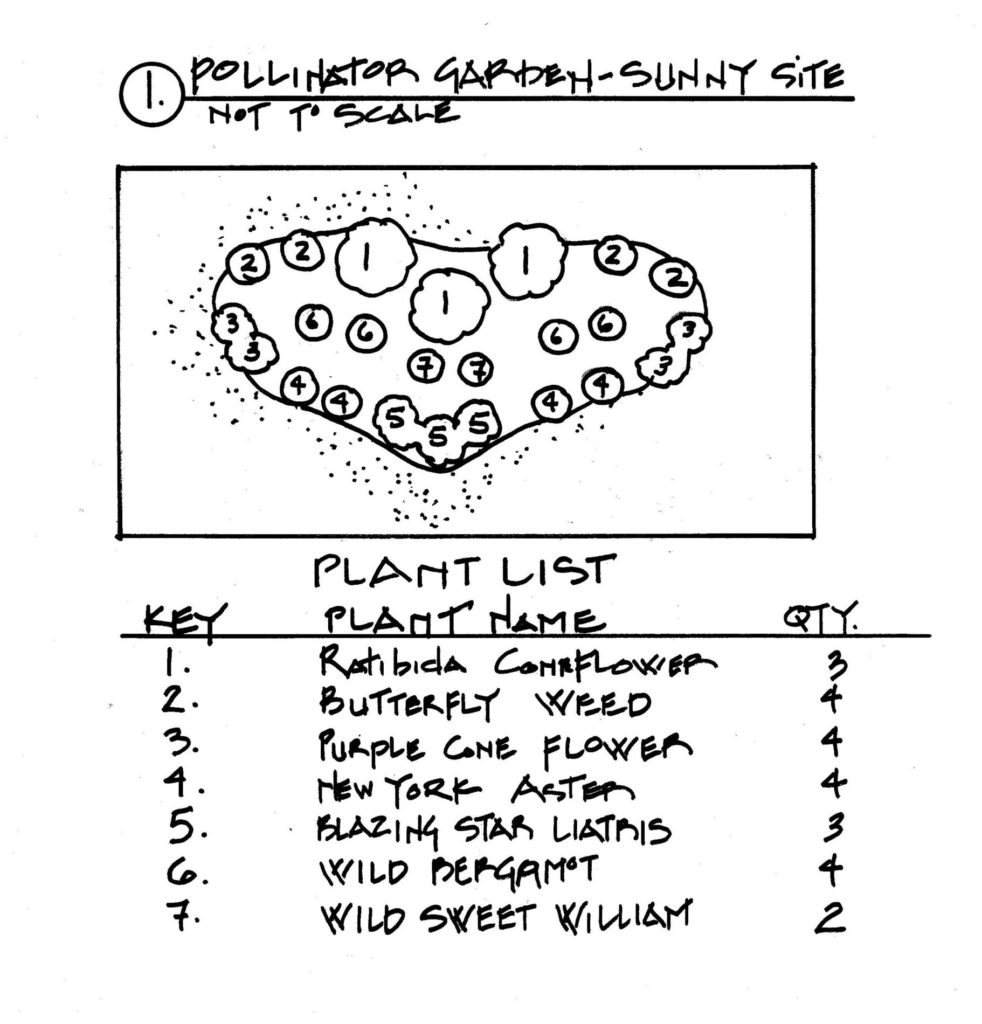 This is also an ideal time to dream big about spring and summer. Brainstorm new ways to help pollinators thrive this year. Will you re-wild part of your yard? Expand your pollinator garden? Help organize the planting and care of a community pollinator garden? Petition your town to reduce roadside mowing?
This is also an ideal time to dream big about spring and summer. Brainstorm new ways to help pollinators thrive this year. Will you re-wild part of your yard? Expand your pollinator garden? Help organize the planting and care of a community pollinator garden? Petition your town to reduce roadside mowing?
Peruse some of the resources on the Adirondack Pollinator Project page for ideas and make sure you’re signed up for our newsletter so you’re alerted to our annual Pollinator Plant Sale.
We also offer free Native Wildflower seed packets to anyone who lives within the Adirondack Park to help increase native pollinator habitat. Planting native wildflower seeds is a perfect springtime activity and a great opportunity to get outside with your family. Request your seeds here – spring will be here before you know it!
Kick off your shoes, grab a warm beverage, and enjoy your pollinator-friendly landscape where you can imagine hundreds of bees nested underground, butterflies in cocoons in your woody plants, and moths wrapped up in the leaf litter. Overwintering pollinators are hibernating and enjoying the winter months with you!
Sources:
PennState Extension. (2018). Fall garden care for pollinators. Retrieved at: https://extension.psu.edu/fall-garden-care-for-pollinators
Welch, S. (2019). Garden cleanup: how to help overwintering pollinators. Farm and Dairy. Retrieved at: https://www.farmanddairy.com/top-stories/garden-cleanup-how-to-help-pollinators/576702.html


